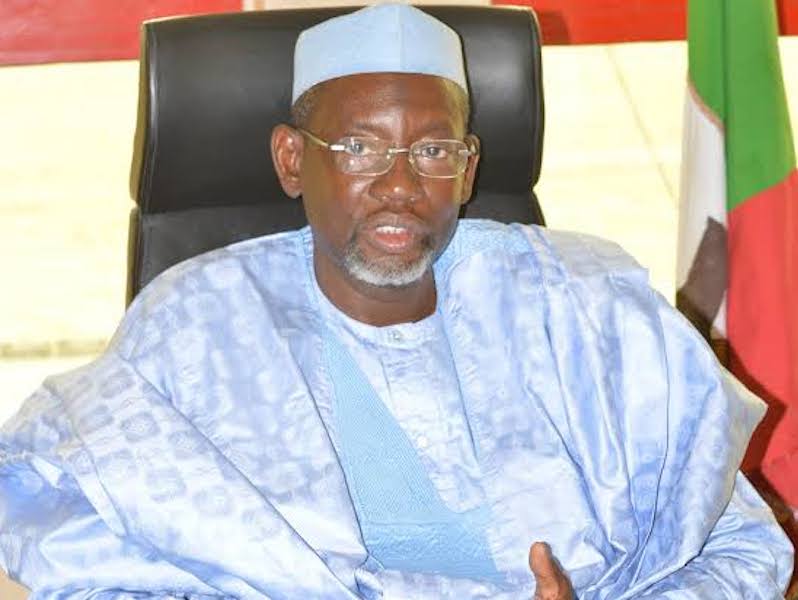By Rosemary Ogbonnaya
National Universities Commission, NUC, has said the Benchmark Minimum Academic Standards, BMAS, for universities has been revised to Core Curriculum Minimum Academic Standards, CCMAS, which will soon be unveiled to the public.
The commission said the CCMAS will provide 70 per cent of what should be taught along with the expected outcomes, while the universities will provide 30 per cent based on their individual contextual peculiarities and characteristics.
Executive Secretary of NUC, Prof Abubakar Rasheed, stated this on Thursday at the presentation of licenses to 12 new private universities recently approved by the Federal Executive Council, FEC.
According to Rasheed, the radical re-engineering of curricula in Nigerian universities carried by NUC is to meet global standards and international best practices towards preparing Nigerian graduates for relevance in the Fourth Industrial Revolution, 4IR, world economy with the skills needed for the future.
He noted that despite having over 200 universities in the country, and a little over 3 million enrolments, they are still grossly inadequate due to the high demand for university education in the country.
The NUC boss charged proprietors of the new universities to ensure that quality is not compromised at the expense of maximisation of profit, adding that NUC will not hesitate to sanction institutions that violate its operational guidelines.
“Even with over 200 universities, access to university education remains a challenge in the education sector in Nigeria due to the high demand for degrees from an increasing number of secondary school graduates and even graduates of Polytechnics and Colleges of Education.
“Records show that the number of applications for university admissions for the 2020 Joint Admissions and Matriculation Board (JAMB) Unified Tertiary Matriculation Examinations (UTME) was 1, 415,501 out of which only 527,929 representing 37.2% gained admission to universities in Nigeria.
“Nigeria is still grossly deficient in access to the university education sub-sector, which is the highest producer of the skilled level manpower required to activate and sustain the socio-economic transformation of the country,” he said.
He applauded proprietors of the private universities licensed at the occasion, for the initiative of establishing these Universities despite the huge resource implication of establishing a private university in Nigeria.
“The role you play in bridging the gap created by the growing demand for university education in the country by your investment is not, and can never be taken for granted.
“I would like to therefore congratulate the Proprietors of the twelve newly approved private universities and assure them of the National Universities Commission’s unrelenting support and cooperation.
“I enjoin you to acquaint yourselves with the code of governance for private universities in Nigeria which aims to enhance the successful running and sustainability of institutions. It has been further reviewed to give some latitude to the Proprietors on the issue of appointment of Principal Officers,” he said.
Also speaking, the Minister of Education, Mallam Adamu Adamu, said 12 new universities brings the number of private universities to 111 and the total number of universities in the country to 215.
Adamu said the lincenses were approved by the federal Executive Council on April 6 for the widening of access to university education in the country.
The minister noted that government recognises the place of education in bolstering the economic fortunes of the country and therefore welcomes private sector investment in the university subsector.
According to him, the need for establishment of more universities in Nigeria has never been more compelling as Nigeria with the population of 200 million has only 111 private universities and 215 universities in total.
The 12 newly -licensed universities include: Pen Resource University, Gombe, Gombe State; Al-Ansar University Maiduguri, Borno State; Proposed Margaret Lawrence University, Galilee, Delta State, and Khalifa Isiyaku Rabiu University, Kano, Kano State.
Others are Sports University, Idumuje, Ugboko, Delta State; Baba Ahmed University, Kano, Kano State; Saisa University of Medical Sciences and Technology, Sokoto, Sokoto State; Nigerian British University, Asa, Abia State; Peter University, Achina/Onneh, Anambra State. 10. Proposed Newgate University, Minna, Niger State; European University of Nigeria, Duboyi, Abuja, FCT and Northwest University, Sokoto, Sokoto State.
In his remarks, a former Executive Secretary of National Universities Commission, Prof Julius Okojie, stressed the need to encourage the establishment and operation of private universities to ensure quality university education.



